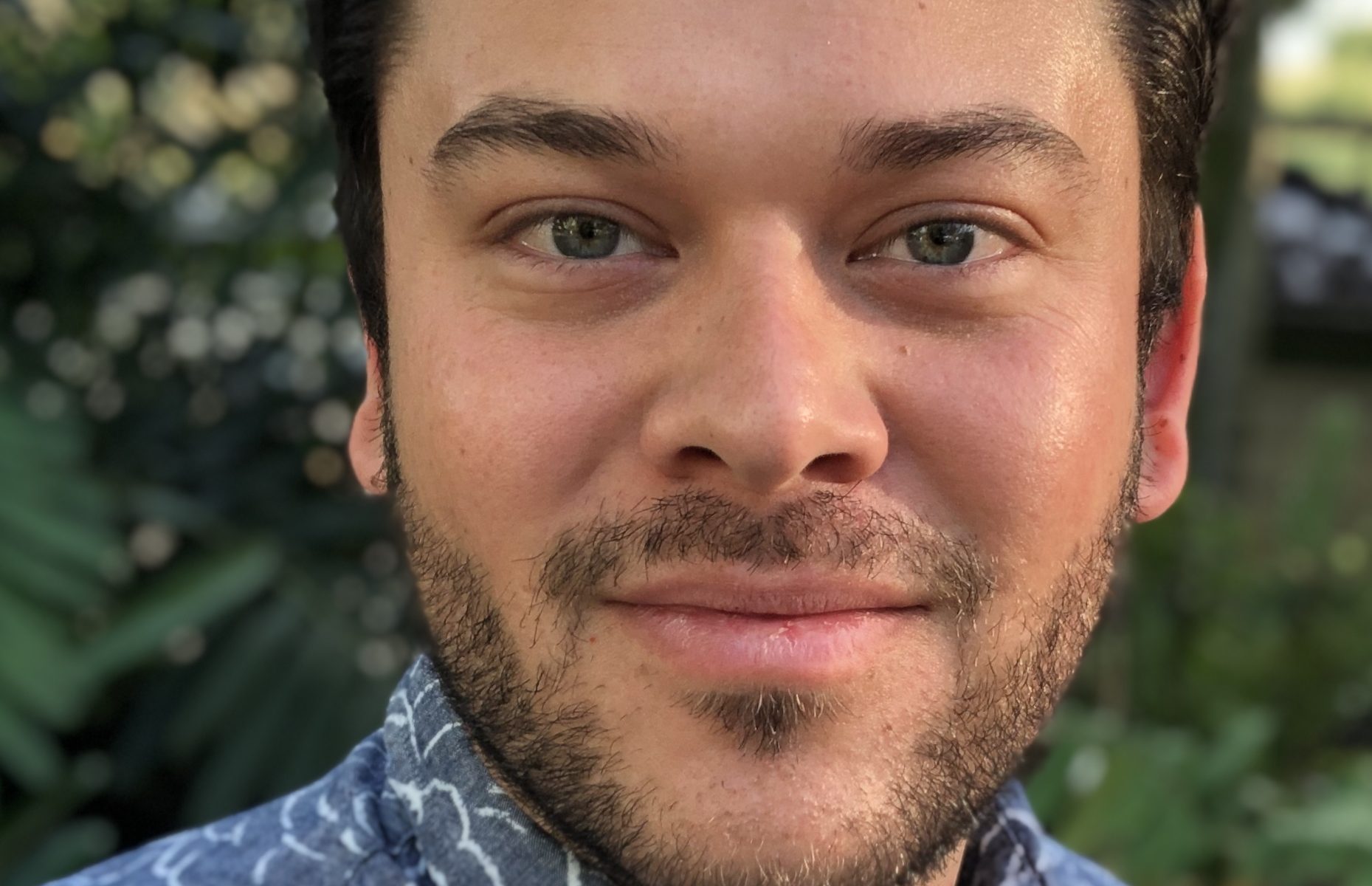This semester, we are doing a spotlight series highlighting the accomplishments of our faculty, graduate and undergraduate students, and alumni.
For our next graduate student spotlight, we are highlighting PhD candidate Joey Radice. Joey grew up on a Japanese koi farm in Miami, Florida. Their interest in language and communication started early due to the fact that their parents had quite an international clientele and professional network. He also grew up fascinated by their grandparents’ Italian, Polish, and Spanish dialects and the arguments spurred by the ensuing miscommunications. Those early experiences began to shape their interest in linguistics. They graduated from UF with a dual degree in Psychology and Linguistics in 2012, taught English in Spain and Italy for a few years, and then returned to UF to complete a Masters in International Business.
Joey is currently in year five of their PhD and this semester they are working to finish my dissertation through a CLAS Dissertation Fellowship and the Charles T. Woods Student Grant through UF’s Center for Gender, Sexualities, and Women’s Studies Research. They also work as the Managing Editor for the Journal of Public Interest Communications and as a tutor and tutor mentor through the University Athletic Association.
1. What does your research focus on?
My research focuses on the discourse of LGBTQ+ allyship. Specifically, I am interested in the linguistic strategies, namely evaluations, that people use while talking about queer friends and family. My research is qualitative and based on narrative data, which I find to be the richest and most authentic source of data for exploring how people convey their lived experiences and emotions. My project is the first to study LGBTQ+ allyship from a linguistic perspective, and in this way I hope to start a conversation in the field that might benefit marginalized communities in the future.
2. What got you interested in this topic?
As a queer person, I have always been hyperaware of the language that people use to talk about LGBTQ+ people and issues. I have also witnessed how disconnected language about LGBTQ+ people can truly be from our lived realities. At the same time, I chose my topic as a means to subvert current trends in lavender linguistics that focus on the discourse of hate speech. We have such a wealth of literature dedicated to the study of anti-LGBTQ+ discourse and rhetoric; why not flip that on it’s head?
3. What led you to studying Linguistics here at UF?
Intro to Linguistics was actually the first course I ever took as a freshman at UF. Over the years, my major changed many times, finally landing on Psychology, but meanwhile I always took linguistics courses whenever my schedule would allow for it. Eventually, I added Linguistics as a second major and completed my undergraduate thesis with Drs. Boxer and Golombek. When I returned to UF to do a Masters of International Business, I again found myself drawn to linguistics by way of elective coursework. Dr. Boxer asked me to consider becoming her PhD student, and I couldn’t say no! I saw the PhD as a chance to develop my skills in and passion for writing.
4. What is something you have enjoyed about the Linguistics graduate program here at UF?
What I have enjoyed most about UF’s Linguistics graduate program is the freedom it allows. My interests and path within the field are nontraditional, as are my professional goals. The program here has allowed me to take courses all over campus to get a better sense of my topic. I have taken courses in Latin American studies, gender and queer theory, psychology, and beyond, and find that the interdisciplinarity of my education has greatly benefited my research perspective.
5. What advice would you have for people interested in graduate school?
My main recommendation for those interested in grad school is to think long and hard about the choices involved. When I began my PhD I had no idea what five years in the program would really feel like–and how much I would change in the process. I think if I had waited another year or two before beginning a PhD, my track would have been very different from what has actually unfolded. I always knew I wanted to complete the highest level of education possible, but I still wonder if the choices I made best suit my personality and interests. I definitely recommend more foresight than I had, but I don’t know if that’s something we’d want on the department’s social media… lol. Overall, I would say to really consider the options, but also not to fear a nontraditional path even within academia.
6. What do you enjoy outside of academia?
Outside of academia I love working with my hands to create tangible products. I still travel to Miami to work on the farm whenever I have the chance. My passions lie in art and creative writing. I paint on occasion, work with resin, and I am currently refinishing a wooden table for the first time. I am also an avid reader of non-academic literature, which I find helps to fuel my own voice and reignite my passion for writing as I sit down to work on my dissertation. That said, it’s probably time to get back to work!
